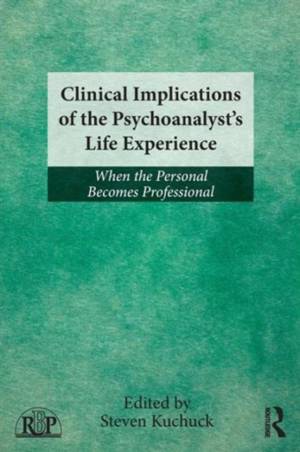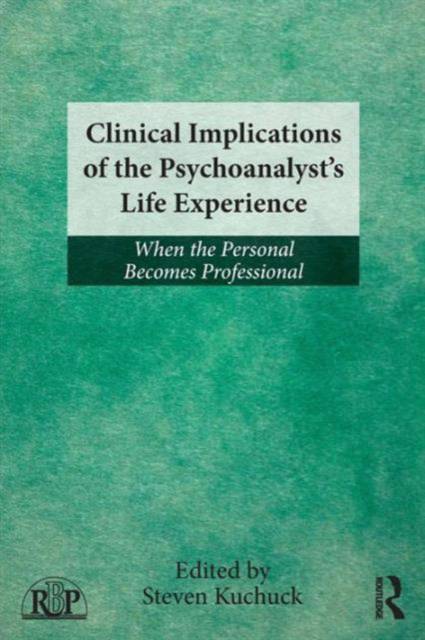
- Afhalen na 1 uur in een winkel met voorraad
- Gratis thuislevering in België vanaf € 30
- Ruim aanbod met 7 miljoen producten
- Afhalen na 1 uur in een winkel met voorraad
- Gratis thuislevering in België vanaf € 30
- Ruim aanbod met 7 miljoen producten
Clinical Implications of the Psychoanalyst's Life Experience
When the Personal Becomes Professional
Omschrijving
2015 Gradiva Award Winner
Clinical Implications of the Psychoanalyst's Life Experience explores how leaders in the fields of psychoanalysis and psychotherapy address the phenomena of the psychoanalyst's personal life and psychology. In this edited book, each author describes pivotal childhood and adult life events and crises that have contributed to personality formation, personal and professional functioning, choices of theoretical positions, and clinical technique.
By expanding psychoanalytic study beyond clinical theory and technique to include a more careful examination of the psychoanalyst's life events and other subjective phenomena, readers will have an opportunity to focus on specific ways in which these events and crises affect the tenor of the therapist's presence in the consulting room, and how these occurrences affect clinical choices. Chapters cover a broad range of topics including illness, adoption, sexual identity and experience, trauma, surviving the death of one's own analyst, working during 9/11, cross cultural issues, growing up in a communist household, and other family dynamics.
Throughout, Steven Kuchuck (ed) shows how contemporary psychoanalysis teaches that it is only by acknowledging the therapist's life experience and resulting psychological makeup that analysts can be most effective in helping their patients. However, to date, few articles and fewer books have been entirely devoted to this topic. Clinical Implications of the Psychoanalyst's Life Experience forges new ground in exploring these under-researched areas. It will be essential reading for practicing psychoanalysts, psychotherapists, psychologists, social workers, those working in other mental health fields and graduate students alike.
Specificaties
Betrokkenen
- Uitgeverij:
Inhoud
- Aantal bladzijden:
- 258
- Taal:
- Engels
- Reeks:
Eigenschappen
- Productcode (EAN):
- 9780415507998
- Verschijningsdatum:
- 4/11/2013
- Uitvoering:
- Paperback
- Formaat:
- Trade paperback (VS)
- Afmetingen:
- 156 mm x 234 mm
- Gewicht:
- 408 g

Alleen bij Standaard Boekhandel
Beoordelingen
We publiceren alleen reviews die voldoen aan de voorwaarden voor reviews. Bekijk onze voorwaarden voor reviews.










